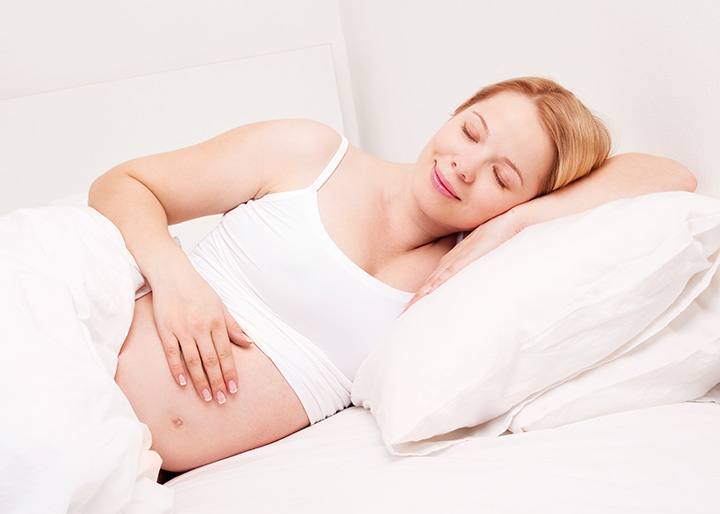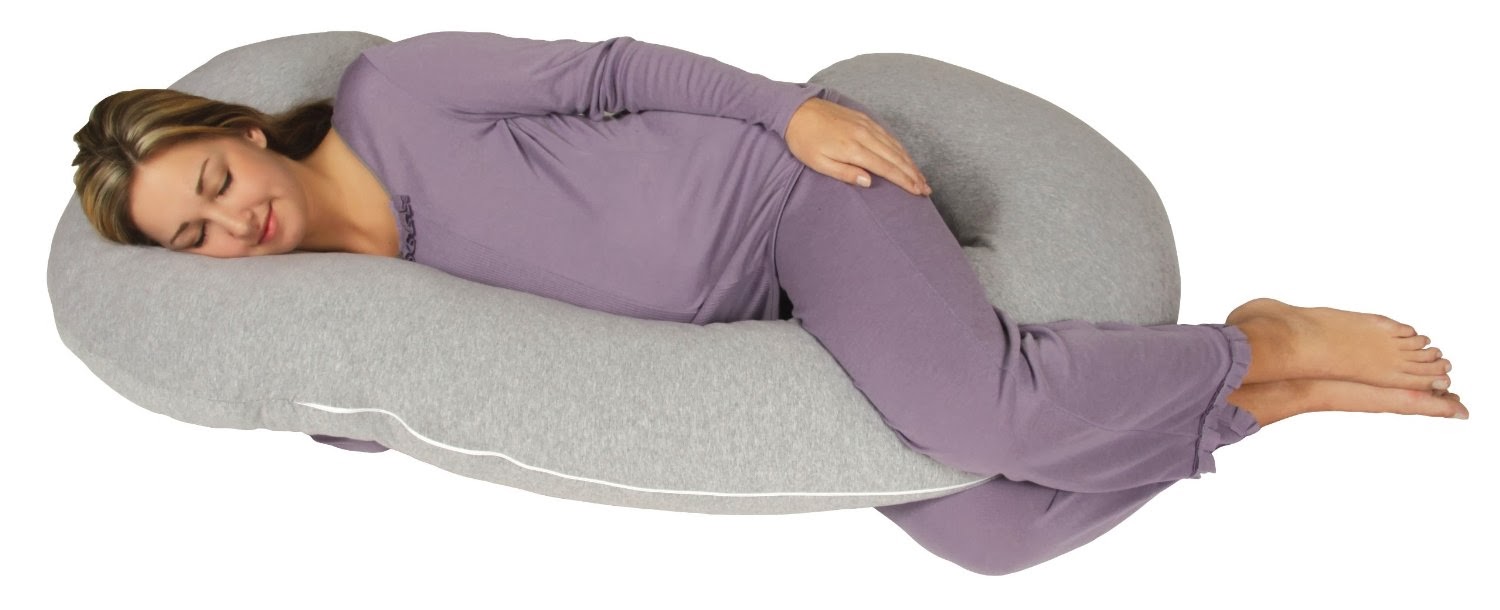Sleeping while pregnant can be quite tricky, especially if you already had bad sleeping habits. Pregnancy is accompanied by various sleep disturbances such as leg cramps, backache, nausea, heartburn and even snoring. Read the article and learn about some sleeping tips during pregnancy. These tips are helpful beyond pregnancy as well.

Sleep Aids During Pregnancy
1. Pillows

Using pillows as a sleeping aid during pregnancy can be quite helpful. They provide proper support and help you sleep peacefully. Tucking a pillow between your bent knees will provide support for your lower back. A pillow behind your back will help you sleep peacefully on one side. Pregnant women are recommended to sleep on their left side.
There are pillows made specifically for pregnancy available on the market today. There are U- shaped, C-shaped or body length pillows on the market. You can also use regular pillows you have at home for proper back and belly support while sleeping.
If you have problems with heartburn during the pregnancy, you can use an extra pillow under your head, so it can lift your head higher.
2. Food and Drink

Proper nutrition is very important during pregnancy for your health and the health of your baby. Moreover, what you eat and what you drink play an important role when it comes to the quality and comfort of your sleep.
- A glass of warm milk is recommended for a better sleep. The L-tryptophan acid found in the milk raises the level of serotonin in the brain, which makes the eyelids heavy.
- Eating a light snack before you go to bed is also necessary, for example, a snack rich in proteins and carbohydrates, such as half a sandwich with milk. An empty stomach may lead to nausea, a thing you would not want.
- If you have problems with heartburn, make sure to avoid large meals late in the day and especially just before you go to bed. Lying down immediately after a meal will just make your problem get worse.
3. Relaxation Techniques

Various relaxation techniques before you go to bed can help you sleep peacefully. One of the following relaxations techniques might do the work for you. Give them a try.
- Massage – Massage is always good for relaxation, especially during pregnancy. Your partner can give you a foot massage, hand massage, neck and shoulder massage, etc. Certain massage techniques are also good for labor time, so make sure to encourage your partner to start practicing them on time with you. If you prefer to get the help of a professional, make sure that he/she knows you are pregnant and that he/she is experienced in working with pregnant women.
- Deep Breathing – Deep breathing is also one of sleep aids during pregnancy. If you breathe deeply and rhythmically, your muscle tension will get relieved, your heart rate will become slower and you will immediately fall asleep. Lie on your back on the bed while your shoulders are width apart. If you are more than 15 weeks pregnant, it will be more comfortable for you to lie on one side. Choose the left side as your baby will not compress the main blood vessels of your body located on the abdomen. Keep your mouth closed and breathe deeply and slowly with your nose. Hold for a second before you exhale and start again.
- Yoga and Stretching – Yoga and stretching are great ways to relax while pregnant. Yoga breathing techniques are also helpful. However, pay attention to the yoga positions you use and instead choose those recommended for pregnant women. Yoga and stretch classes are available everywhere. Get the help of a professional if you are not able to perform these exercises correctly on your own at home by watching many yoga videos.
4. Progressive Muscle Relaxation
This relaxation technique requires weeks to master it. However, once you have mastered it correctly, it will help you achieve better sleep during pregnancy. Lie on your bed and relax your muscles first by tensing them. Make sure to focus on one group of muscles at a time. Remember to alternate the both left and right side.
Start from your hands, forearms, upper arms, face, jaw, shoulder, and chests and continue to other body parts such as a stomach, back, thighs, legs, until you reach your feet.
5. Guided Imagery
Imagining yourself in a quiet place while relaxing can be very helpful. Try to imagine every detail of that scene. For example, imagine yourself on a sandy beach, a field full of blooming flowers, a snowy mountain, etc. Everyone is unique so you can choose whichever scene you prefer.
Imagine the sounds surrounding you, the texture, the smells and the colors as well. Stay focused as long as you can. Even though you might not sleep immediately, it will help you relax while trying to sleep.
6. Exercise

Once pregnant, regular physical exercise can help you keep yourself active and healthy during the entire nine months that you are expecting. Physical exercise will also have an impact on your sleep and even solve your sleeping problems during pregnancy.
Make sure not to overdo it and especially make sure not to exercise about four hours before going to bed. Working out just before you go to bed will interfere with your normal sleeping cycle, making it sometimes impossible to sleep a couple of hours after physical activity. Instead, try to exercise regularly during the afternoon or early evening.
7. Complementary Therapies
Complementary therapies such as aromatherapy or herbal remedies are often recommended as sleep aids during pregnancy.
Aromatherapy oils have been found to be very effective when used for nausea, backache or swollen ankles relief while pregnant. If you have a good health and if you use them every now and then, aromatherapy oils are safe to use during pregnancy. Inhaling some drops of chamomile or lavender can help you relax and enjoy a good’s night sleep during pregnancy.
Talk to your health care provider if aromatherapy is suitable for you. Also, wait until the second trimester of pregnancy to use essential oils for relaxation.
8. Medication
In general, medications should be avoided during pregnancy. However, if your doctor recommends you, you should take medications regularly regardless if you are pregnant or not.
In cases of severe sleep problems, over-the-counter medications may be recommended during the second and third trimesters of pregnancy. Antihistamine medications such as doxylamine or diphenhydramine hydrochloride are sometimes recommended as sleep aids during pregnancy.
